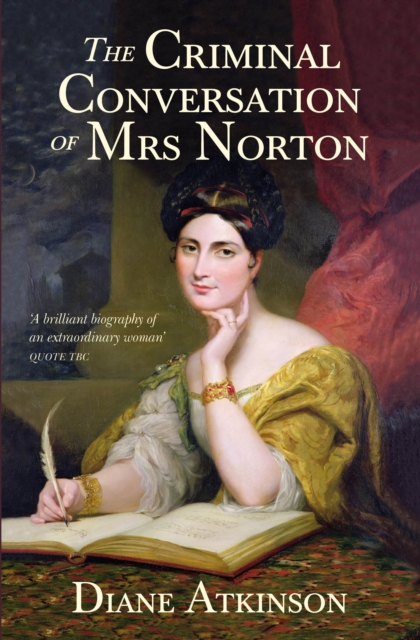
The Criminal Conversation of Mrs Norton Hardback
by Diane Atkinson
Hardback
Description
Westminster, London, 22 June 1836. It is a fine, fresh morning that will become hot as the day progresses.
Crowds are gathering at the Court of Common Pleas. On trial is Caroline Sheridan, a beautiful and clever young woman who had been manoeuvred into marrying the Honourable George Norton when she was just nineteen.
Ten years older, he is a dull, violent and controlling lawyer but Caroline is determined not to be a traditional wife.
By her early twenties, Caroline has become a respected poet and songwriter, clever mimic and outrageous flirt.
Her beauty and wit attract many male admirers, including the Prime Minister, Lord Melbourne.
After years of simmering jealousy, Norton accuses Caroline and the Prime Minister of a 'criminal conversation' (adultery) precipitating 'the scandal of the century'.
In Westminster Hall that day is a young Charles Dickens, who would, just a few months later, fictionalise the event as 'Bardell v.
Pickwick' in The Pickwick Papers. After a trial lasting twelve hours, the jury's not guilty verdict is immediate, unanimous and sensational.
Norton is a laughing stock. Angry and humiliated he cuts Caroline off, as was his right under the law, refuses to let her see their three sons, seizes her manuscripts and letters, her clothes and jewels, and leaves her destitute.
The Criminal Conversation of Mrs Norton is the extraordinary story of one woman's fight for the rights of women everywhere.
For the next thirty years Caroline campaigned for women and battled male-dominated Victorian society, helping to write the Infant Custody Act (1839), and influenced the Matrimonial Causes (Divorce) Act (1857) and the Married Women's Property Act (1870), which gave women a separate legal identity for the first time.
Information
-
Item not Available
- Format:Hardback
- Pages:496 pages, Illustrations, ports.
- Publisher:Cornerstone
- Publication Date:19/07/2012
- Category:
- ISBN:9781848093010
Information
-
Item not Available
- Format:Hardback
- Pages:496 pages, Illustrations, ports.
- Publisher:Cornerstone
- Publication Date:19/07/2012
- Category:
- ISBN:9781848093010






